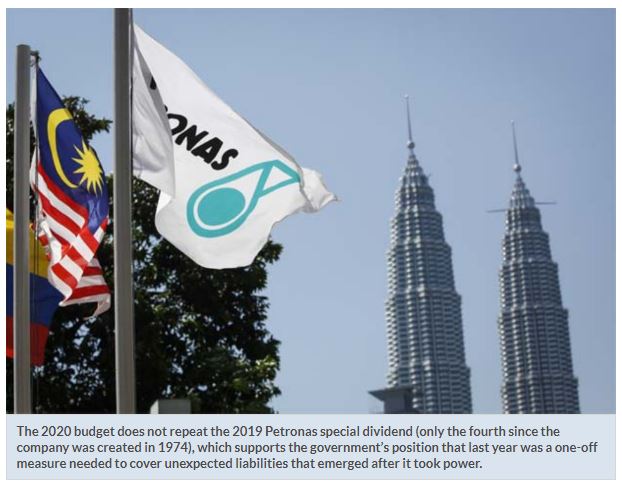Malaysia can keep strong growth despite global tensions
KUALA LUMPUR: Malaysia’s well-diversified export base will help the economy maintain a relatively strong growth despite global trade tensions, Fitch Ratings says.
It said yesterday global trade tensions were weighing on growth, particularly as Malaysia was a small, open economy integrated into Asian supply chains.
“However, fiscal risks in 2020 from slower-than-forecast growth are limited by the budget’s conservative revenue growth target of 4.8%, adjusted for last year’s special Petronas dividend, ” it said in a statement on the Budget 2020 proposals.
Although the government has forecasts that GDP would increase by 4.7% this year and 4.8% next year, Fitch Ratings said the targets may be moderately optimistic.
As for the goods and services tax (GST), the rating agency said the repeal of the GST and its replacement with a narrower sales and service tax was a significant setback to fiscal consolidation. “The resulting net revenue loss of around 1% of GDP has effectively increased reliance on commodity receipts, ” it said.
Fitch also pointed out that the budget contained modest fiscal easing of the deficit target in response to increased economic growth risks, but did not represent a significant shift in the government’s consolidation efforts.
“The new fiscal targets are slightly looser than our expectations when we affirmed Malaysia’s sovereign rating at A-/Stable in July, but they do not fundamentally change the medium-term fiscal outlook, ” it said.The budget targets a 2020 fiscal deficit of 3.2% of GDP, revised from 3.0%. The government expects to meet this year’s 3.4% target, and projects deficits to average 2.8% over the medium term.
“These medium-term targets are consistent with reducing Malaysia’s high public debt, which is a sovereign rating weakness, although the reduction may be slightly delayed, ” it said.
The government estimates general government debt to GDP has risen to 65.1% in June 2019 (including committed guarantees serviced from the budget and 1Malaysia Development Bhd (1MDB) debt from 62.6% in December 2018.
As a result, it will take longer – and require more consolidation efforts – to bring debt closer to the ‘A’ – category median of 48% of GDP.
Fitch pointed out the Pakatan Harapan coalition’s first budget in November last year featured much bigger near-term deficit target revisions (the 2018 deficit was increased to 3.7% from 2.8%).
These did signal weaker headline consolidation goals from the new government, although they were in part also caused by moves to boost fiscal transparency by bringing some one-off expenditure items on budget.
“Nevertheless, fiscal credibility could suffer if consolidation were to be repeatedly delayed, for example from difficulties in raising enough revenue to offset shortfalls from the GST, which was repealed after the 2018 election.
The 2020 budget balances fiscal consolidation with a desire to support GDP growth, which we forecast to slow to 4.5% in both 2019 and 2020 from 4.7% in 2018.
However, the 2020 budget does not repeat the 2019 Petronas special dividend (only the fourth since the company was created in 1974), which supports the government’s position that last year was a one-off measure needed to cover unexpected liabilities that emerged after it took power.
Fitch said increasing non-oil revenues and further economic diversification would be a meaningful support to medium-term consolidation. The budget contains various measures to support non-commodity based growth. These incentives may help relocate investments to Malaysia (FDI has already been strong in recent quarters), but investors also face heightened political uncertainty.
Source: https://www.thestar.com.my/business/business-news/2019/10/17/m039sia-can-keep-strong-growth-despite-global-tensions#DrMXWywRQROsH2Vw.99


 English
English




